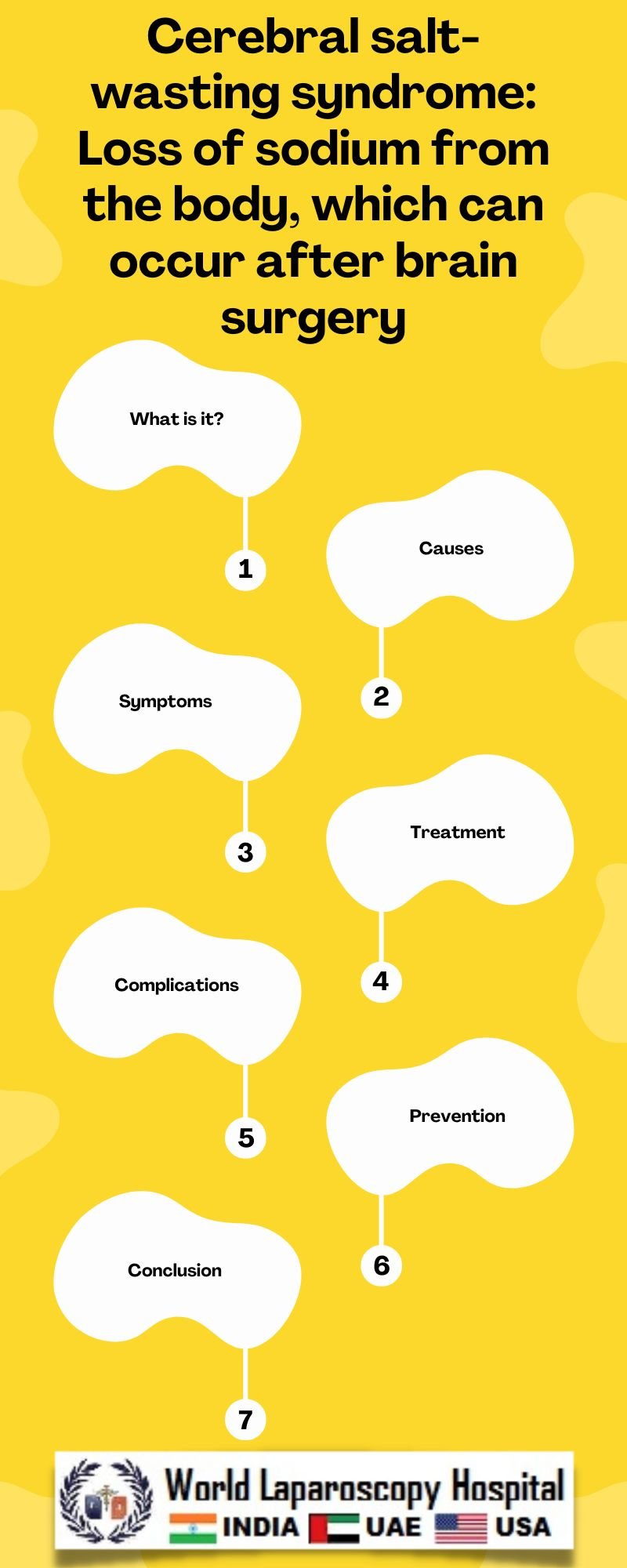Cerebral salt-wasting syndrome: Loss of sodium from the body, which can occur after brain surgery
Introduction
Brain surgery is a complex and delicate procedure that can have profound effects on the body's physiological balance. One of the lesser-known complications that can arise after brain surgery is cerebral salt-wasting syndrome (CSWS), a condition characterized by the excessive loss of sodium from the body. In this article, we will explore the causes, symptoms, diagnosis, and treatment of CSWS, with a focus on its occurrence after brain surgery.

Understanding Cerebral Salt-Wasting Syndrome
CSWS was first described in 1950 by Peters et al. as a condition characterized by hyponatremia (low sodium levels in the blood), dehydration, and excessive urine output in patients with brain injury or disease. Unlike the more commonly known syndrome of inappropriate antidiuretic hormone secretion (SIADH), which also presents with hyponatremia, CSWS is characterized by the loss of sodium through the urine, leading to a decrease in blood volume and subsequent dehydration.
Causes of CSWS After Brain Surgery
The exact mechanism underlying the development of CSWS after brain surgery is not fully understood. However, several theories have been proposed. One theory suggests that the surgery itself may disrupt the normal regulatory mechanisms of sodium and water balance in the body, leading to the excessive loss of sodium through the urine. Another theory suggests that the brain injury or disease that necessitated the surgery may directly affect the kidneys' ability to retain sodium, leading to its loss.
Symptoms of CSWS
The symptoms of CSWS can vary depending on the severity of the sodium loss. Mild cases may present with symptoms such as nausea, vomiting, weakness, and fatigue. In more severe cases, patients may experience confusion, seizures, coma, and even death if left untreated. It is important to note that the symptoms of CSWS can be similar to those of other conditions, such as SIADH, making it essential to accurately diagnose the underlying cause of hyponatremia.
Diagnosis of CSWS
Diagnosing CSWS can be challenging, as it requires differentiating it from other causes of hyponatremia, such as SIADH. The diagnostic process typically involves a thorough medical history, physical examination, and laboratory tests, including blood tests to measure sodium levels and urine tests to assess sodium excretion. Imaging studies, such as MRI or CT scans, may also be performed to evaluate the brain and assess for any underlying pathology.
Treatment of CSWS
The treatment of CSWS aims to restore sodium levels to normal and correct any dehydration or electrolyte imbalances. This may involve the administration of intravenous fluids containing sodium and monitoring of sodium levels closely. In some cases, medications such as fludrocortisone, a mineralocorticoid that helps retain sodium, may be prescribed to help restore the body's sodium balance.
Conclusion
Cerebral salt-wasting syndrome is a rare but potentially serious complication that can occur after brain surgery. It is characterized by the excessive loss of sodium from the body, leading to dehydration and electrolyte imbalances. Early recognition and treatment of CSWS are essential to prevent serious complications and improve outcomes for patients undergoing brain surgery. Further research is needed to better understand the underlying mechanisms of CSWS and develop more effective treatments
| Older Post | Home | Newer Post |


